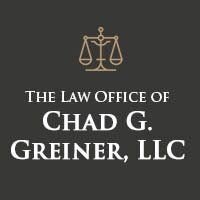Best Drugs & Medical Devices Lawyers in Georgia
Share your needs with us, get contacted by law firms.
Free. Takes 2 min.
Or refine your search by selecting a city:
List of the best lawyers in Georgia, United States
About Drugs & Medical Devices Law in Georgia, United States
Drugs and medical devices law in Georgia encompasses the legal framework governing the development, approval, distribution, marketing, and use of pharmaceuticals and medical devices within the state. This area of law addresses regulations set by both federal and state authorities, such as the Food and Drug Administration (FDA) and the Georgia Department of Public Health. The law aims to protect public health by ensuring that drugs and medical products sold or used in Georgia are safe, effective, and properly labeled. These laws also outline the rights and responsibilities of patients, manufacturers, healthcare providers, and distributors involved with medical products.
Why You May Need a Lawyer
Legal challenges involving drugs and medical devices can be complex and overwhelming. Individuals may need a lawyer for a variety of reasons, including:
- Experiencing adverse effects or injury from a drug or medical device
- Dealing with product recalls or safety warnings affecting your health
- Disputing insurance coverage related to necessary drugs or devices
- Facing criminal charges related to prescription drug possession or distribution
- Healthcare providers or businesses navigating compliance with federal and state regulations
- Filing or defending against claims of medical malpractice involving drugs or devices
- Participating in class action lawsuits regarding defective drugs or devices
A lawyer experienced in this field can help you understand your rights, evaluate your options, and advocate for your interests in negotiations or court proceedings.
Local Laws Overview
Georgia’s laws affecting drugs and medical devices interact with federal regulations but also contain state-specific provisions. Some key aspects include:
- Prescription Drug Regulations: Georgia controls the prescribing, dispensing, and use of prescription medications, with strict requirements for healthcare professionals and pharmacists.
- Reporting and Monitoring: The Georgia Prescription Drug Monitoring Program (PDMP) tracks the dispensing of controlled substances to prevent abuse and ensure patient safety.
- Medical Device Oversight: While the FDA has primary authority, Georgia may add additional compliance requirements for certain devices used in state-licensed facilities.
- Product Liability Laws: Georgia allows injured individuals to file lawsuits against manufacturers, distributors, or sellers for defective drugs and medical devices, but enforces statutes of limitations and rules about comparative fault.
- Criminal Laws: The state has laws regarding the unlawful possession, distribution, or sale of prescription drugs, with penalties ranging from fines to imprisonment.
- Healthcare Facility Regulations: Hospitals and clinics must follow state and federal guidelines for storing, dispensing, and disposing of drugs and medical devices.
Awareness of these laws is vital for patients, healthcare professionals, and anyone involved in the supply chain for medical products in Georgia.
Frequently Asked Questions
What should I do if I am injured by a drug or medical device in Georgia?
Seek immediate medical attention and preserve any evidence, such as the product packaging or your prescription. Document your symptoms and contact a lawyer experienced in product liability or medical malpractice to evaluate your case.
Can I file a lawsuit against a pharmaceutical company for a defective drug?
Yes, if you have suffered harm from a drug that was defectively designed, manufactured, or labeled. Georgia law allows for lawsuits against manufacturers, distributors, or sellers in certain circumstances.
Are there time limits for filing a drugs or medical device lawsuit in Georgia?
Yes, generally you have two years from the date of injury to file a personal injury lawsuit in Georgia. There are some exceptions, such as cases involving minors or delayed discovery of injury. Consulting a lawyer promptly is important.
What is the Georgia Prescription Drug Monitoring Program?
The Georgia PDMP is a statewide electronic database that records controlled substance prescriptions. It helps track prescribing and dispensing to prevent abuse, diversion, and doctor shopping.
What are the penalties for illegal possession of prescription drugs in Georgia?
Penalties can range from misdemeanor charges to felonies, depending on the type and quantity of the drug. Convictions may result in fines, jail time, probation, and a permanent criminal record.
How can I find out if a drug or device has been recalled in Georgia?
You can check recall notices from the FDA or the Georgia Department of Public Health. Healthcare providers and pharmacies are also notified of recalls and should inform affected patients.
What legal options are available for someone harmed in a mass tort or class action?
You may join ongoing litigation or file an individual lawsuit. A lawyer can help determine the best course based on your specific situation and whether a mass action is underway for your drug or device.
Are over-the-counter medications regulated differently than prescription drugs?
Yes, over-the-counter medications are subject to different approval and labeling standards, but they are still regulated for safety and efficacy at both federal and state levels.
What rights do patients have regarding drug and device information?
Patients have the right to accurate information about the risks, benefits, and proper use of drugs and devices. Georgia law and federal regulations require healthcare providers to inform patients and obtain consent.
If my insurance denies coverage for a necessary device, what can I do?
You have the right to appeal the denial. Insurance regulations in Georgia provide for an internal review process and, in some cases, an external review. Consulting a lawyer or patient advocacy group can help.
Additional Resources
Several organizations and agencies provide information and assistance related to drugs and medical devices in Georgia:
- Food and Drug Administration (FDA)
- Georgia Department of Public Health
- Georgia Composite Medical Board
- Office of the Attorney General of Georgia
- Georgia Prescription Drug Monitoring Program
- Georgia Pharmacy Association
- Consumer Product Safety Commission
- Local Bar Associations for referrals to experienced attorneys
- Patient advocacy organizations and support groups for drug and device injuries
Next Steps
If you need legal assistance regarding drugs and medical devices in Georgia:
- Gather all relevant documentation, such as prescriptions, medical records, and correspondence
- Document the details of your situation, including dates, symptoms, and communications
- Identify potential witnesses or healthcare providers involved
- Contact a lawyer with experience in drug and medical device law as soon as possible
- Be prepared to discuss your case and ask questions about the process, fees, and potential outcomes
- Use the resources listed above for additional information and support
Prompt action is especially important due to time limits for legal claims. A qualified attorney can help you understand your rights, evaluate your options, and pursue appropriate remedies.
Lawzana helps you find the best lawyers and law firms in Georgia through a curated and pre-screened list of qualified legal professionals. Our platform offers rankings and detailed profiles of attorneys and law firms, allowing you to compare based on practice areas, including Drugs & Medical Devices, experience, and client feedback.
Each profile includes a description of the firm's areas of practice, client reviews, team members and partners, year of establishment, spoken languages, office locations, contact information, social media presence, and any published articles or resources. Most firms on our platform speak English and are experienced in both local and international legal matters.
Get a quote from top-rated law firms in Georgia, United States — quickly, securely, and without unnecessary hassle.
Disclaimer:
The information provided on this page is for general informational purposes only and does not constitute legal advice. While we strive to ensure the accuracy and relevance of the content, legal information may change over time, and interpretations of the law can vary. You should always consult with a qualified legal professional for advice specific to your situation.
We disclaim all liability for actions taken or not taken based on the content of this page. If you believe any information is incorrect or outdated, please contact us, and we will review and update it where appropriate.
Browse drugs & medical devices law firms by city in Georgia
Refine your search by selecting a city.















